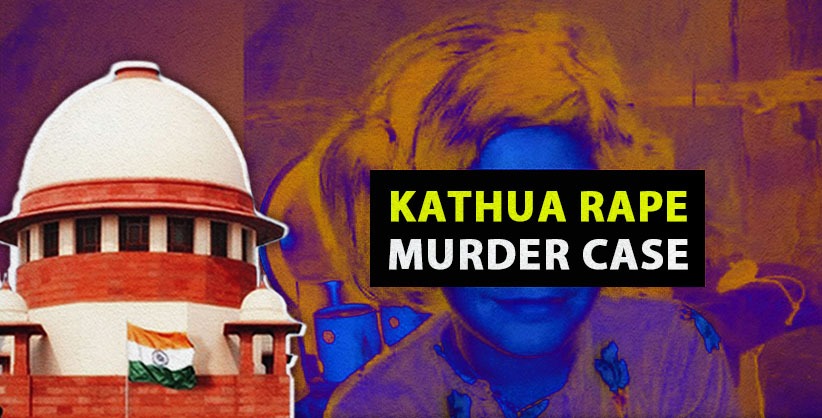Leniency to juveniles emboldening them to indulge in heinous crimes: SC
NEW DELHI: The Supreme Court on Wednesday directed that an accused in the alleged Kathua rape-cum-murder case has to be tried as an adult, and not as a juvenile, on the basis of medical opinion in absence of any other conclusive proof, while expressing its concern on growing involvement of juveniles in "brutal" crimes.
"We have started gathering an impression that the leniency with which the juveniles are dealt with in the name of goal of reformation is making them more and more emboldened in indulging in such heinous crimes," a bench of Justice Ajay Rastogi and J B Pardiwala said.
The court also said it is for the government to consider whether its enactment of 2015 has proved to be effective or something still needs to be done in the matter before it is too late in the day.
The 2015 Juvenile Justice Act allowed trials of the juvenile in the age group of 16-18 years as an adult if they were found to be in conflict with the law, especially heinous crimes.
On an appeal by the Jammu and Kashmir government, the court set aside an order to treat the accused Shubam Sangra as juvenile, while relying upon the medical board's view estimating his age as 19 years.
"The accused was not a juvenile at the time of commission of the offence and should be tried the way other co-accused were tried in accordance with the law. Law to take its own course. It is needless to clarify that the guilt or the innocence of the accused shall be determined strictly on the basis of evidence," the bench said.
The bench further said the serious offence which accused is alleged to have committed and gave effect to it in a well-planned manner, reflecting his maturity of mind rather than innocence indicating that his plea of juvenility is more in the nature of a shield to dodge or dupe the arms of law, cannot be allowed to come to his rescue.
The state questioned the High Court's decision saying it had erroneously affirmed the order of a trial court holding the accused to be a minor.
In its judgement on Wednesday, the bench said the medical opinion regarding the age in absence of any other conclusive evidence should be considered to determine the age range of the accused.
"Whether medical evidence can be relied upon or not depends on value of evidence. Thus order passed by CJM Kathua is set aside and thus the accused is held not to be a juvenile at the time of crime," the bench said.
The court also said, "When an accused commits a heinous and grave crime like the one on hand and thereafter attempts to take the statutory shelter under the guise of being a minor, a casual or cavalier approach while recording as to whether an accused is a juvenile or not cannot be permitted as the courts are enjoined upon to perform their duties with the.object of protecting the confidence of a common man in the institution entrusted with the administration of justice".
The police claimed, the eight-year-old girl from the nomadic community of Bakerwal was allegedly kidnapped from Kathuas Rasana area on January 10, 2018.
The victim was kidnapped, drugged, hit by a stone, raped and strangulated by the accused, the police claimed.
Her body was found dead seven days after.
A trial court in Pathankot had sentenced three convicts in the case Sanji Ram, Deepak Khajuria and Parvesh Kumar to life imprisonment.
Ram was alleged to be the mastermind of the crime, Khajuria was a police officer. Special Police Officer Surender Verma, head constable Tilak Raj and sub-inspector Anand Dutta were awarded five years in prison for destroying evidence.
The trial court acquitted the seventh accused, Vishal Jangotra, son of Sanji Ram, by giving him the benefit of doubt.







